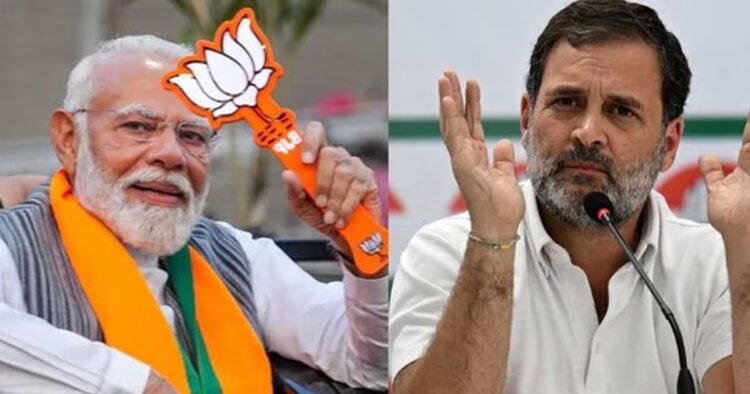The Bharatiya Janata Party (BJP) and its National Democratic Alliance (NDA) have taken an early lead as the vote counting for the 2024 Lok Sabha elections began at 8 AM on Tuesday, June 4. This election is a crucial one, with Prime Minister Narendra Modi and the BJP seeking a third consecutive term in power. The opposition, led by the Congress party, is aiming to unseat them.
The counting process is a massive undertaking, with votes being counted for over 8,000 candidates. Security has been tightened to ensure that the process goes smoothly. This election saw the highest voter participation in Bharat’s history, making it a significant event for the nation.
Among those contesting are senior BJP leaders like Prime Minister Narendra Modi, Home Minister Amit Shah, and Defence Minister Rajnath Singh. On the opposition side, prominent candidates include former Congress chief Rahul Gandhi, Nationalist Congress Party’s (NCP) Supriya Sule, and Samajwadi Party chief Akhilesh Yadav.
Predictions and Expectations
Most exit polls have predicted a victory for the BJP, suggesting that Narendra Modi will secure a third term as Prime Minister. If this happens, Modi will become the first Prime Minister since Jawaharlal Nehru to achieve three consecutive terms.
As per initial trends by ECI, the BJP is leading on 4 seats.#LokSabhaElections2024 pic.twitter.com/BNrH5hfIrl
— ANI (@ANI) June 4, 2024
Exit polls also indicate that the BJP may increase its seat count from the 303 seats it won in the 2019 elections.
In the 2019 Lok Sabha elections, the NDA won 353 seats, with the BJP alone securing 303 seats. The opposition’s United Progressive Alliance (UPA) managed to win only 93 seats, with the Congress party getting 52 of those.
Opposition’s Challenge
The opposition parties have come together under the INDIA bloc, hoping to challenge the BJP’s dominance. Despite their efforts, exit polls suggest that the BJP will return to power with a strong majority and make significant gains in states like Odisha, West Bengal, and some southern states.
The Lok Sabha elections were conducted in seven phases over a period of several weeks. Voting took place on April 19, April 26, May 7, May 13, May 20, May 25, and June 1. The lengthy process has culminated in today’s vote count, which will decide the electoral fate of many leaders across the political spectrum.
State Legislative Assemblies and Bypolls
Alongside the Lok Sabha vote count, results are also being tallied for the State Legislative Assemblies of Andhra Pradesh (175 seats) and Odisha (147 seats), as well as bypolls in 25 Assembly constituencies. These counts are crucial for determining the regional political landscape and could influence the overall balance of power in Indian politics.
As the day progresses, the final results will become clear, and Bharat will know whether the BJP will continue its rule for another term or if the opposition will succeed in their bid to take over.

















Comments